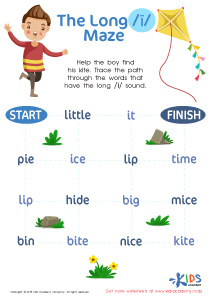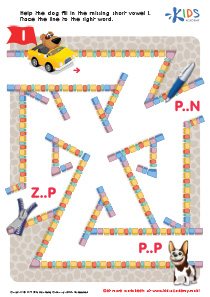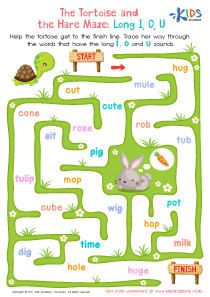Extra Challenge Short Vowels Worksheets for Ages 5-8
4 filtered results
-
From - To
Unlock your child's potential with our "Extra Challenge Short Vowels Worksheets for Ages 5-8"! Tailored to boost early reading skills, these engaging worksheets focus on short vowel sounds, essential for developing phonemic awareness. Designed for kids who need an extra challenge, each worksheet features fun activities that promote letter recognition and sound correlation. With vibrant illustrations and engaging exercises, children will enjoy learning while honing their literacy skills. Perfect for classrooms and at-home practice, these worksheets make learning phonics exciting! Give your little learners the advantage they need to thrive in their reading journey. Start exploring today!
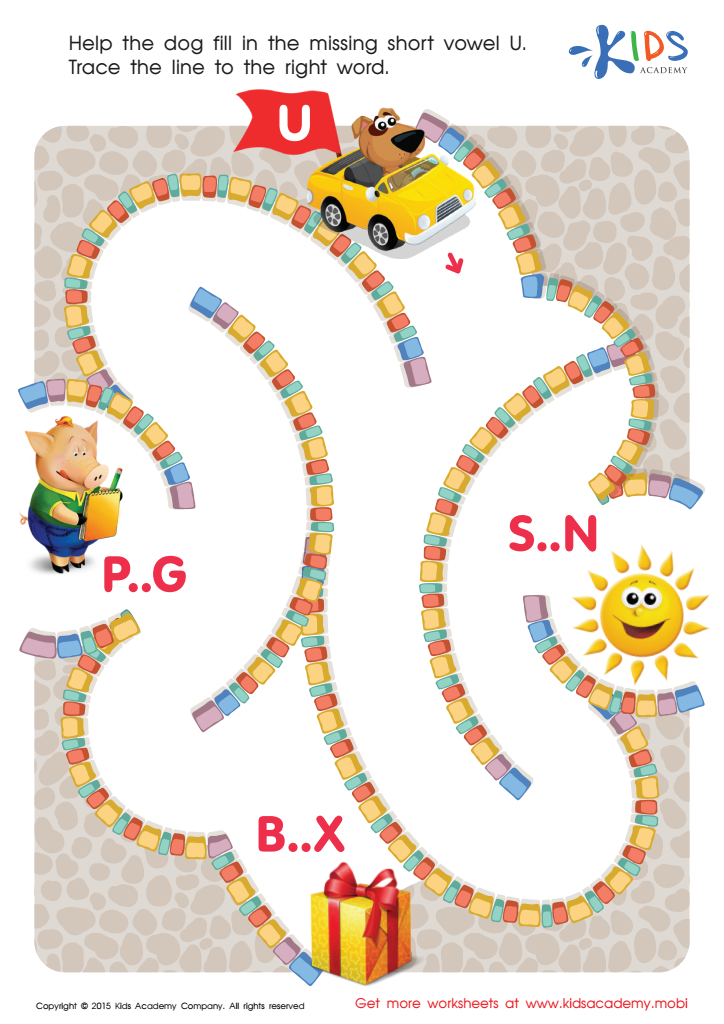

Short Vowel Sound U Worksheet
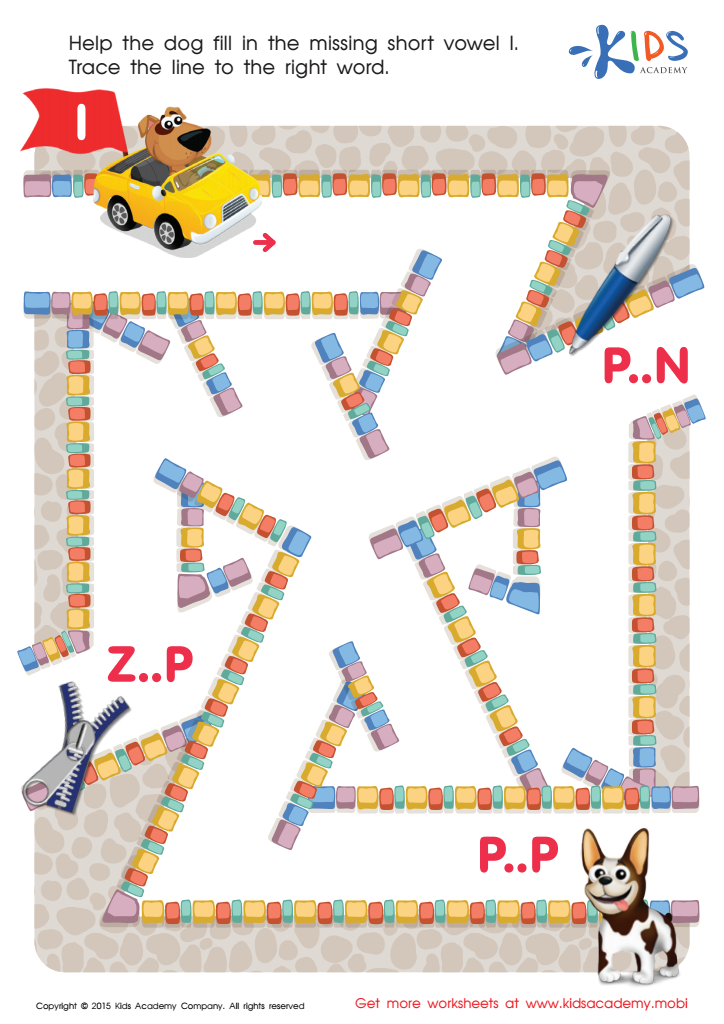

Short Vowel Sound I Worksheet
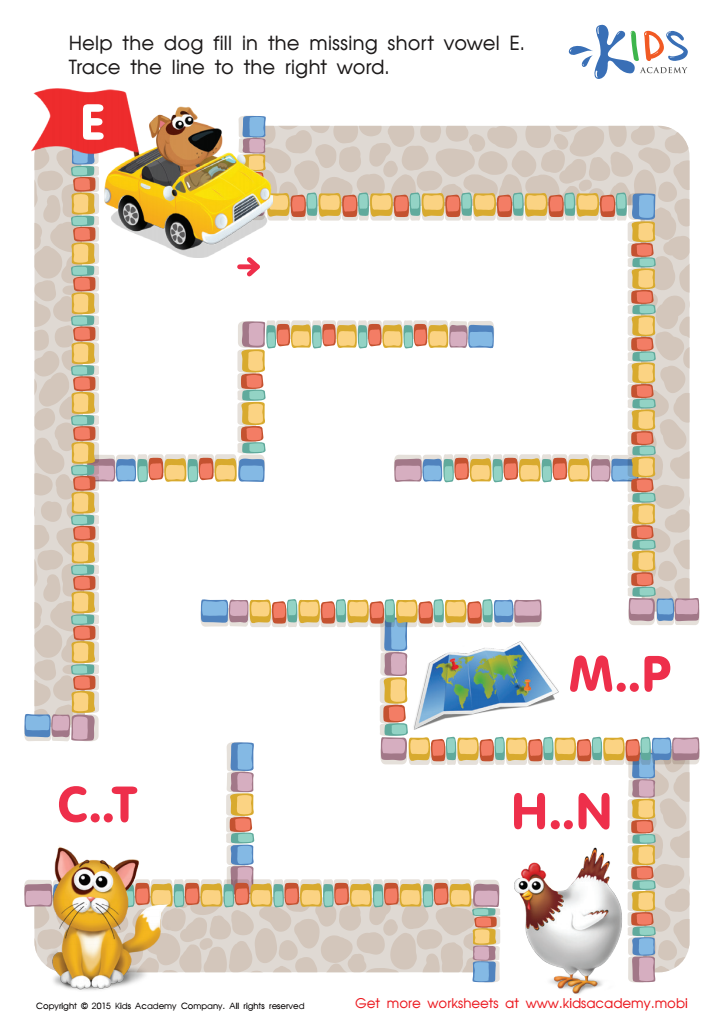

Short Vowel Sound E Worksheet
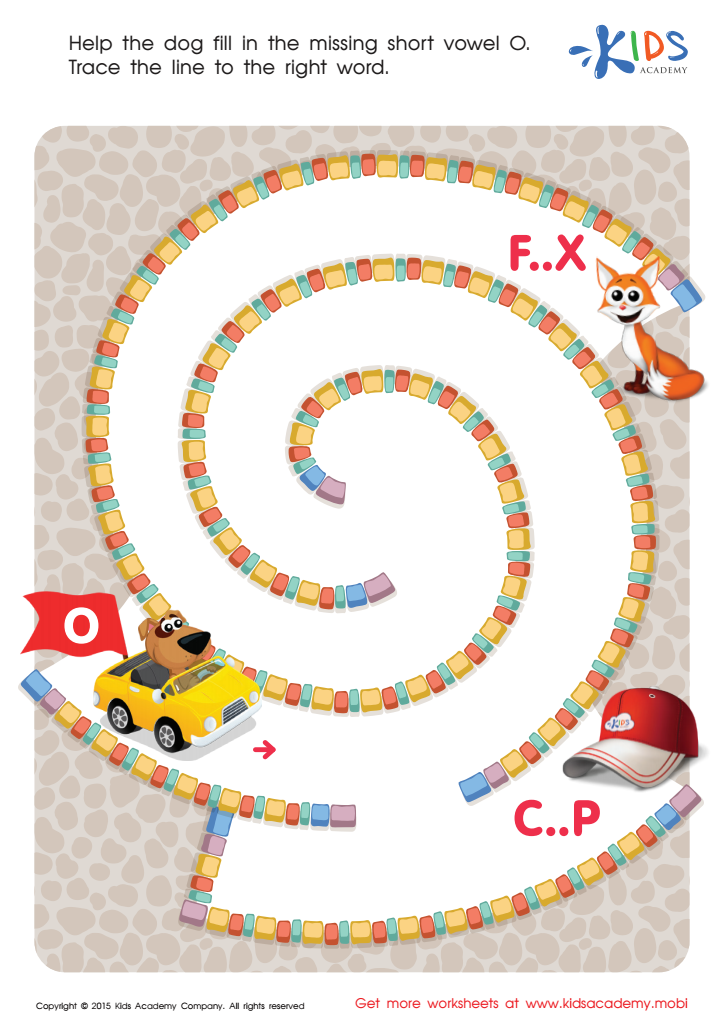

Short Vowel Sound O Worksheet
Extra Challenge Short Vowels activities for children ages 5-8 are crucial for early literacy development. Short vowels form the foundation of phonics, which is essential for reading and writing skills. When parents and teachers engage children in extra challenge exercises, they reinforce their understanding of these sounds in a fun and interactive manner. Mastery of short vowels enables children to decode a wider range of words, fostering greater reading fluency and confidence.
Moreover, early intervention is key; many literacy challenges can be mitigated by emphasizing phonemic awareness at this age. Extra challenge activities can also cater to diverse learning styles, making it easier for children who may struggle with traditional teaching methods to grasp these concepts. Through games, songs, and hands-on activities, learning can become an enjoyable experience that motivates children to practice more.
In addition, strong vowel awareness enhances comprehension skills, as children begin to recognize patterns in words and their meanings. By investing time in these activities, parents and teachers not only support literacy development but also instill a lifelong love of reading. This formative period shapes future academic success, making it imperative that adults prioritize and implement short vowel challenges in their teaching strategies.
 Assign to My Students
Assign to My Students






